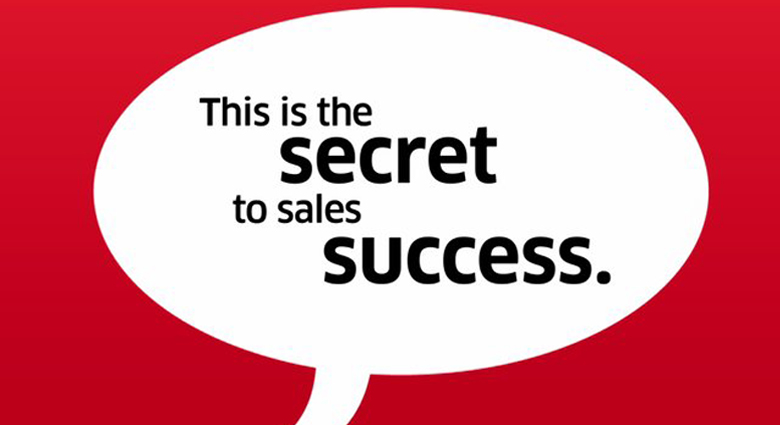Not everyone works in sales, but we’re pretty much all salespeople. That’s the message of Daniel H. Pink’s latest book, To Sell Is Human . We spoke to the bestselling author about what this means for brands and individuals.
As the title of your book suggests, the word “sales” gets a pretty bad rap. Why do you think that is?
"Not everyone works in sales, but we’re pretty much all salespeople."
A lot of us think of sales as sleazy and slimy and manipulative because for a long time, most of what we knew about sales came from an age of information asymmetry.
The seller always had more information than the buyer. When the seller has more information, the seller can rip you off. This is why we have the principle of “buyer beware.”
I think that’s changed. We’ve gone from a world of information asymmetry to one closer to information parity.
This transition – from buyers who don’t have much information, not many choices and no way to talk back, to [buyers who] have lots of information, lots of choices and all kinds of ways to talk back – has changed the game, moving us from a world of “buyer beware” to one of “seller beware.”
And this all happened in the last ten years, thanks to the internet and social media?
That’s been a big force. I think sales has changed more in the last decade than it did in the previous five decades combined. The shift in the information balance between buyer and seller is like nothing we’ve ever seen before.
You focus on two industries in the book that aren’t usually front of mind when you hear talk about sales: education and health care. Why is that?
I was trying to explain why people are reporting that they’re spending a lot of time moving, persuading and influencing people. You’d get this pretty high number in the U.S. at least, 41 percent [of workers surveyed].
One of the things that really jumped out at me was where the jobs were. If you look at the U.S. labour market data, the jobs are coming from education and health care services.
Talk to any teacher and they’ll say, “Oh my gosh, that’s what I’m doing. I’m selling the idea of paying attention in class, I’m selling the idea of doing your homework.” And in some ways, medicine is, “I’m selling you on the idea of quitting smoking, I’m selling you on the idea of exercising more,” and so forth.
One word we hear about a lot in the digital content world these days is “curation.” You suggest that curation is the key to being a successful salesperson or brand as well. Can you unpack that?
I actually resisted using it because it’s so prominent in the world of content. Folks in online businesses have heard that word a gazillion times but most civilians have not.
The idea is this: It used to be that having access to information was some kind of advantage, but now everybody has access to information. If I want to know the GDP of Sweden, I can find it in ten seconds. So having access to information doesn’t matter. What matters more is being able to take that information and make sense of it, not only on your own behalf but also on behalf of other people.
Is that related to your idea of “problem finding” versus “problem solving”?
Yes, it’s an important concept, too. If you know exactly what your problem is, then you can find a solution without a salesperson, without anyone else. If I know my problem is that all I need to do is find the GDP of Sweden, I don’t need any help.
Where I need help is if I’m asking the wrong question, or if I’m wrong about my problem. There has been a move from problem solving to problem finding, from solving existing problems to identifying problems people don’t realize they have.
In the sales context, if you know exactly what your problem is, you don’t need a salesperson. So problem solving still matters, but it matters relatively less. Problem finding is a more valuable skill.
Are we seeing the roles of what’s traditionally seen as a consultant versus a salesperson blurring?
Yeah, and that’s been happening for a while. There’s a whole move towards what’s called consultative sales. I think what’s really going on is something that others have written about as well, which is this move from selling products and event services to selling insights.
It’s particularly true in business-to-business sales. One of the things that comes out with all the interviews with B2B salespeople is how much you need to understand the customer’s or prospect’s business, and so it is tiptoeing a little away from peddling products and a bit towards management consulting and generating insights.
"Wow, I’m glad you’re taking sales seriously."
Have you got any pushback from actual professional salespeople when you say that we’re all in sales? Should they be worried about their industry being disrupted by amateurs?
It’s a great question. There’s been a little bit of that, but less than I would have thought. Where I’ve gotten some distressed emails is from salespeople who say, “Oh my god, I can’t believe that people have such a dim view of sales!”
Part of the argument of the book is that we should take sales more seriously – that sales isn’t the glad-handing, slick, somewhat duplicitous profession it’s stereotyped as, but that it requires a great degree of intellectual sophistication and insight.
So for everyone who says, “Oh, I can’t believe you’re allowing people to say sales is so grim,” I have a couple more who say, “Wow, I’m glad you’re taking sales seriously.”





.png)




What Did You Think?